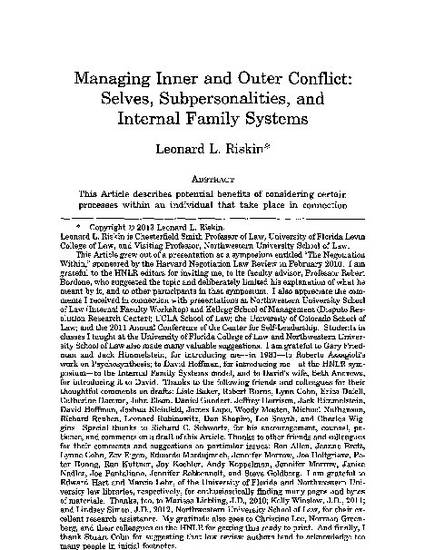
This article describes potential benefits of considering certain processes within an individual that take place in connection with external conflict as if they might be negotiations or other processes that are routinely used to address external disputes, such as mediation or adjudication. In order to think about internal processes in this way, it is necessary to employ a model of the mind that includes entities capable of engaging in such processes. The Internal Family Systems (IFS) model, developed by Richard C. Schwartz, works well for this purpose. The IFS model is grounded on the construct that the mind is composed of two kinds of entities that interact systematically: “Parts” of the personality (or “Subpersonalities”) and the Self. The article integrates the IFS model with conflict resolution theory and practice. It proposes a combined perspective, which it argues can give us access to certain internal processes and help us:
- Understand certain potentially conscious internal processes and their relationship to external conflict;
- Assess such processes; and
- Manage (and hopefully improve) such processes, which should lead to more appropriate external conflict-related behavior and to less suffering in connection with conflict.
